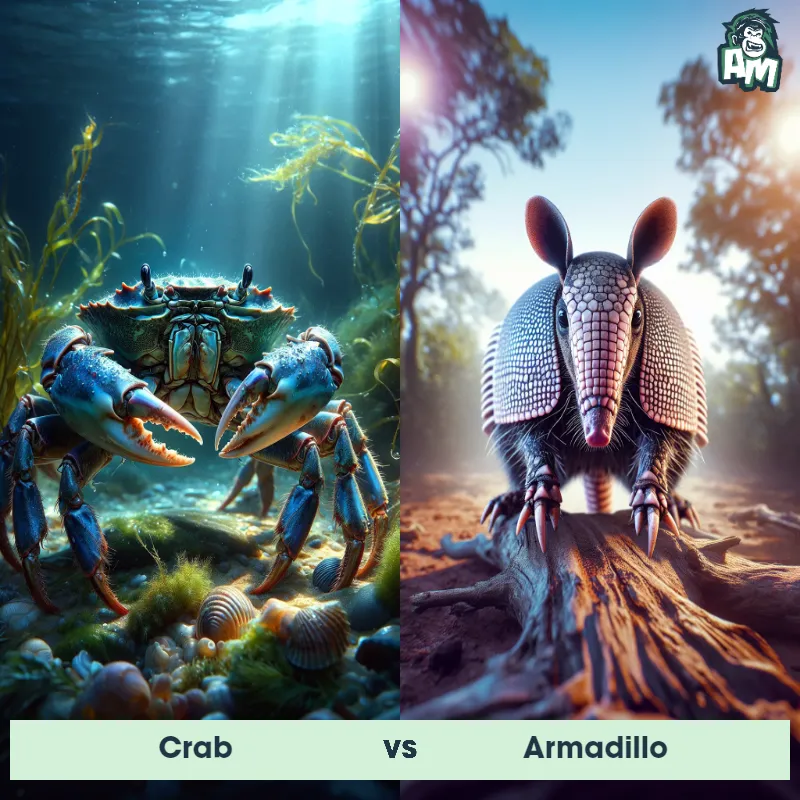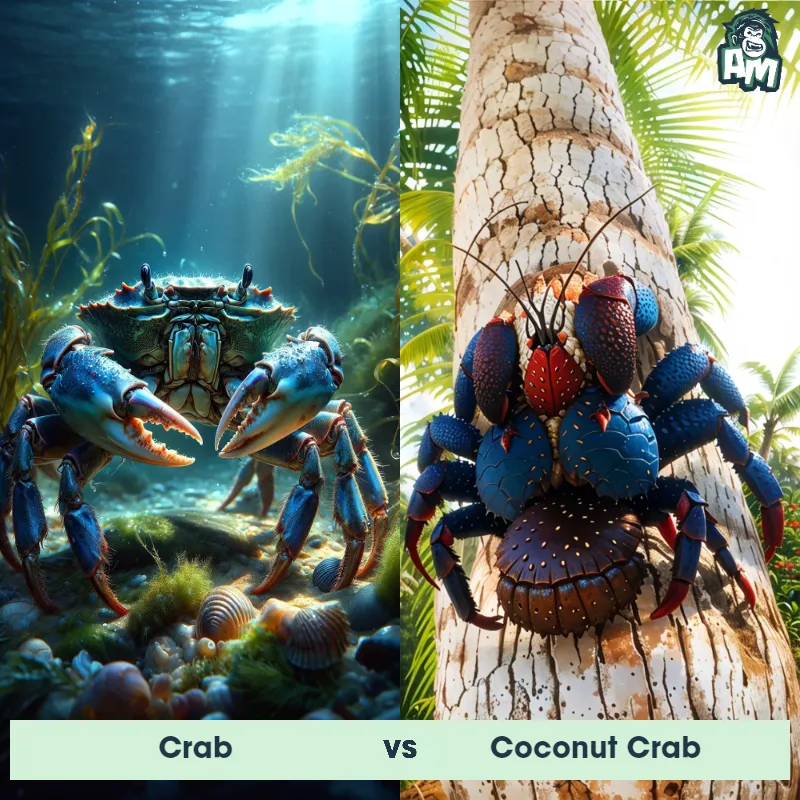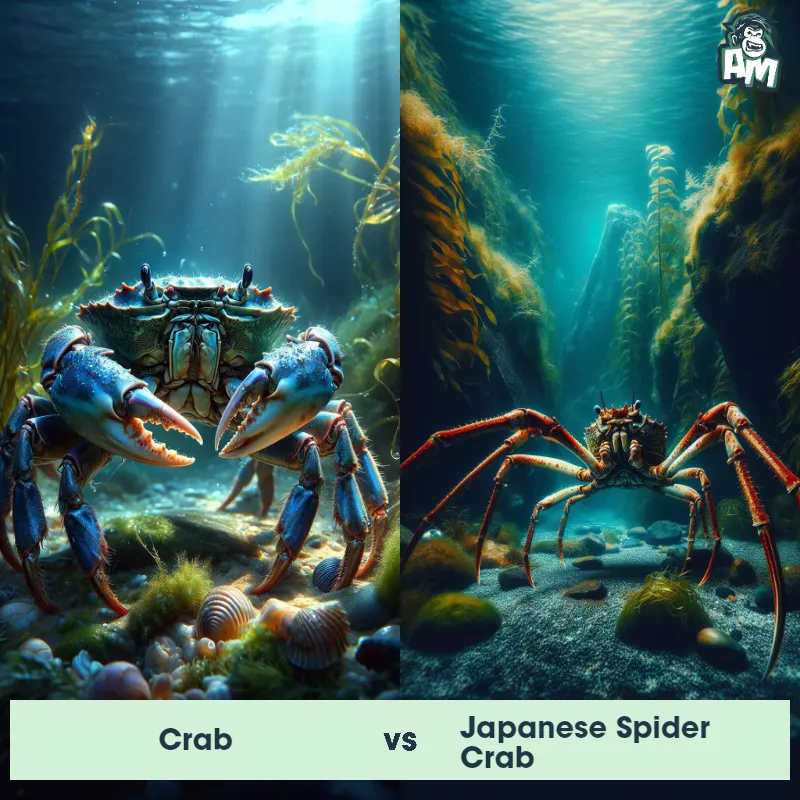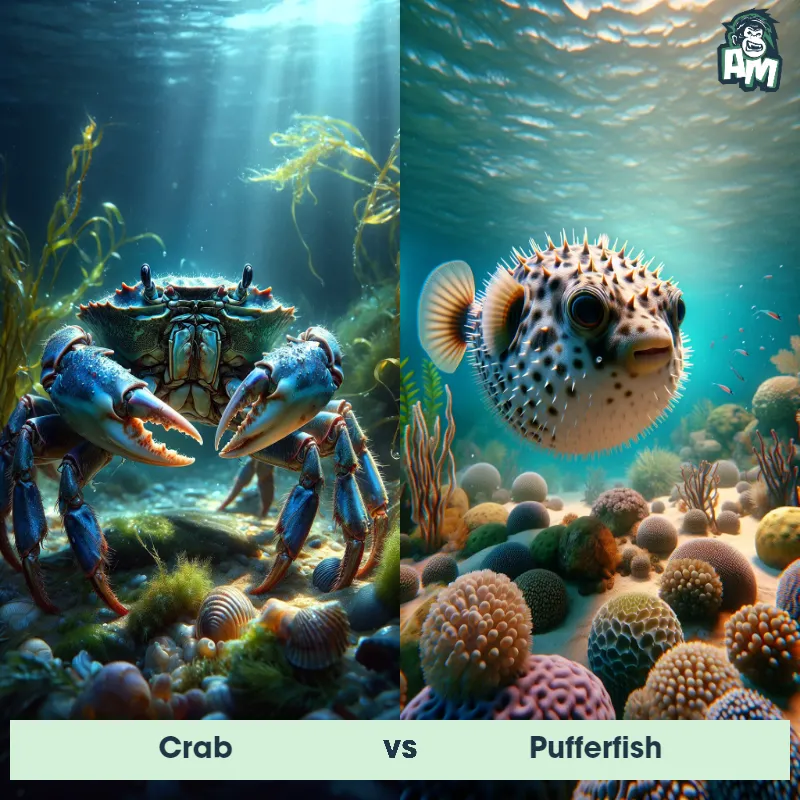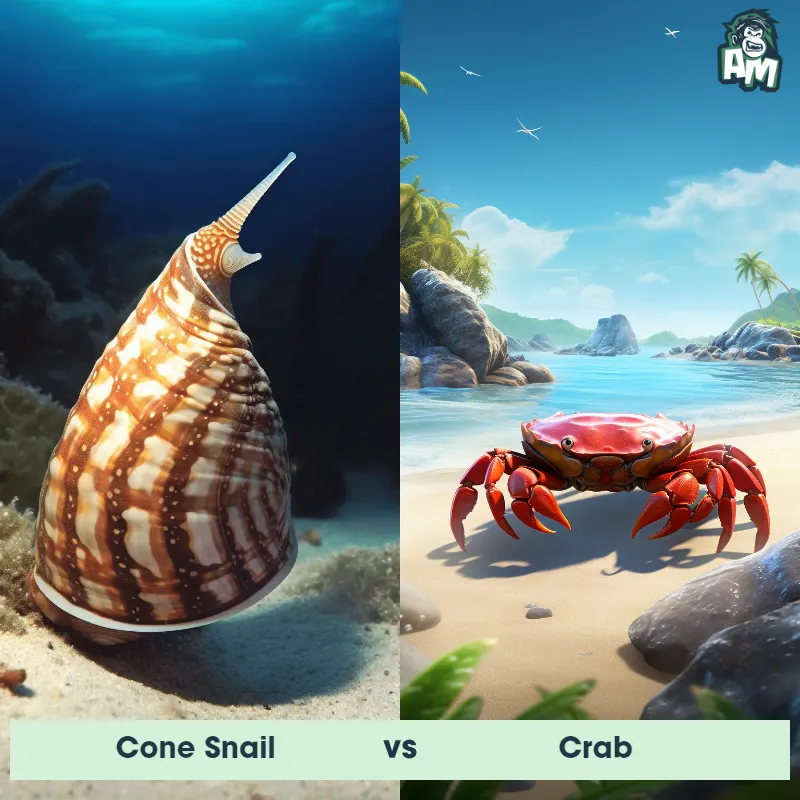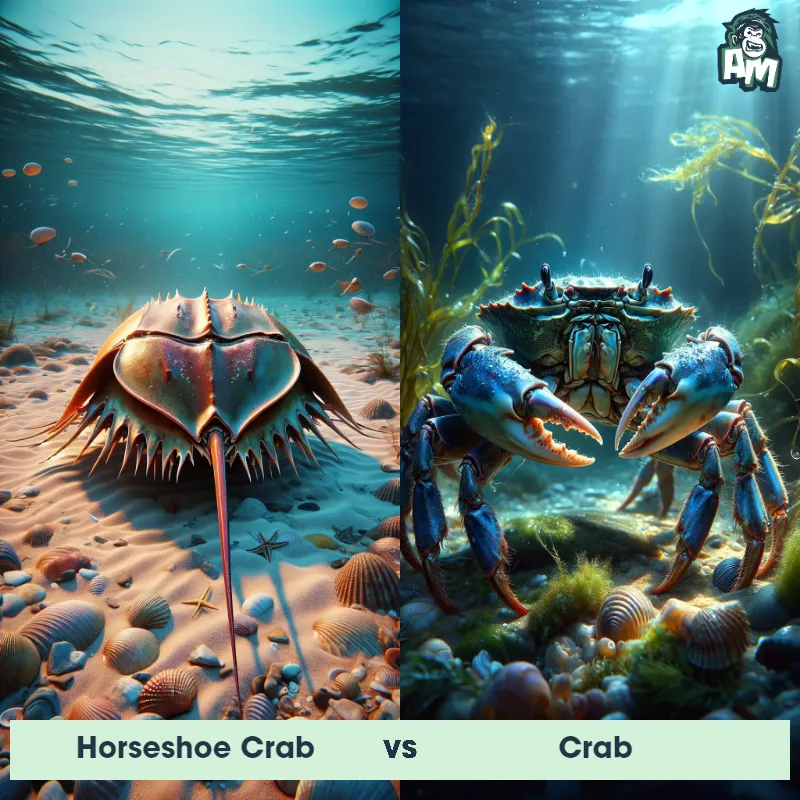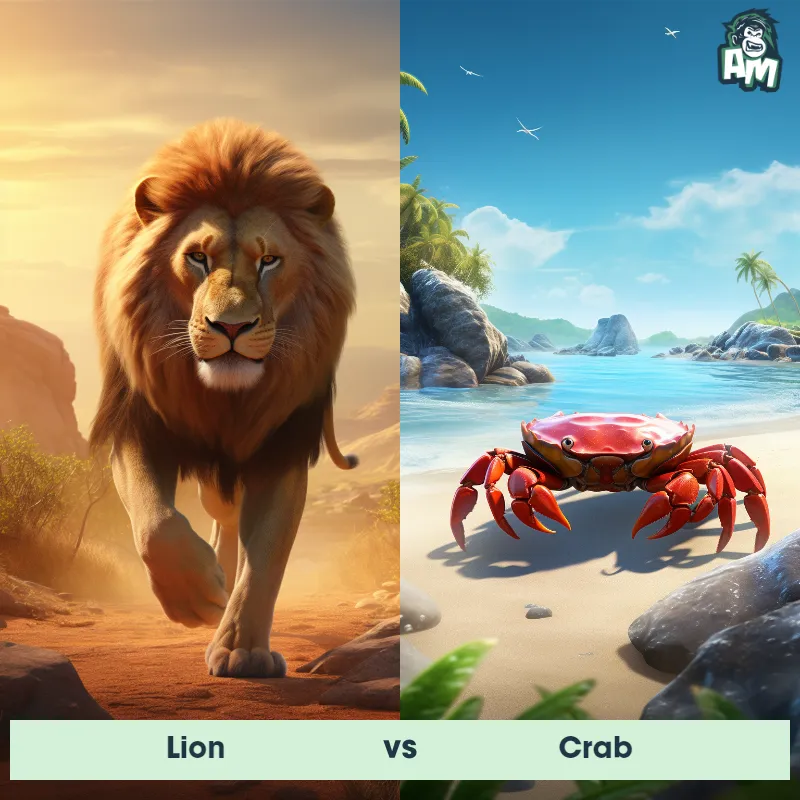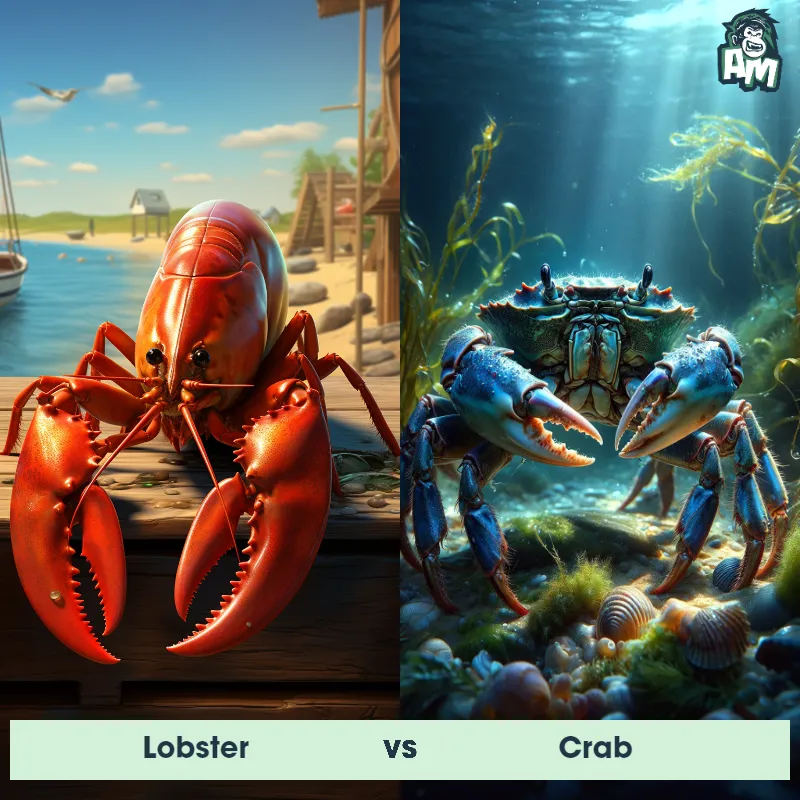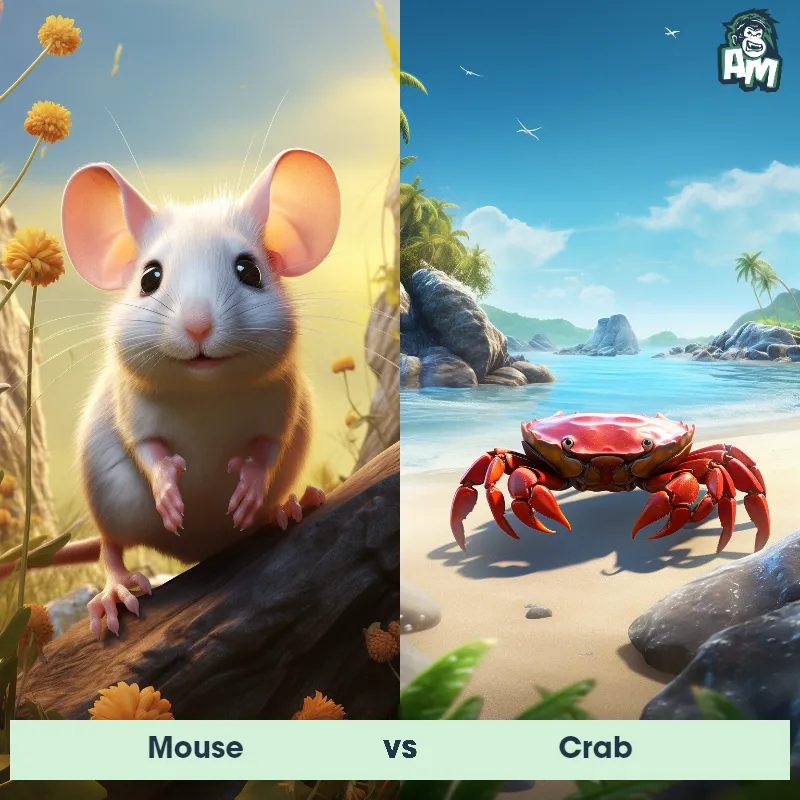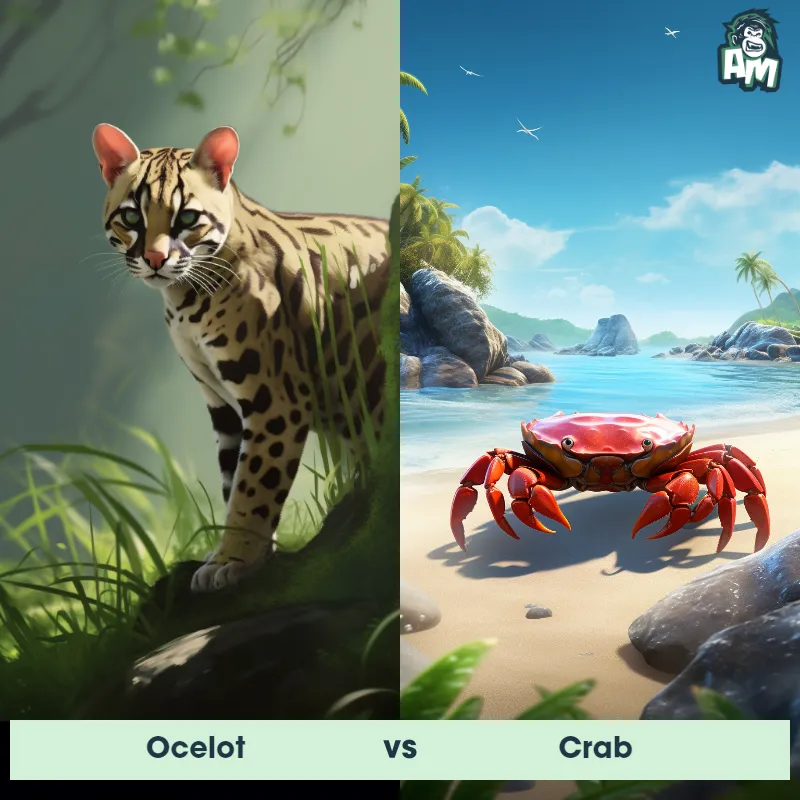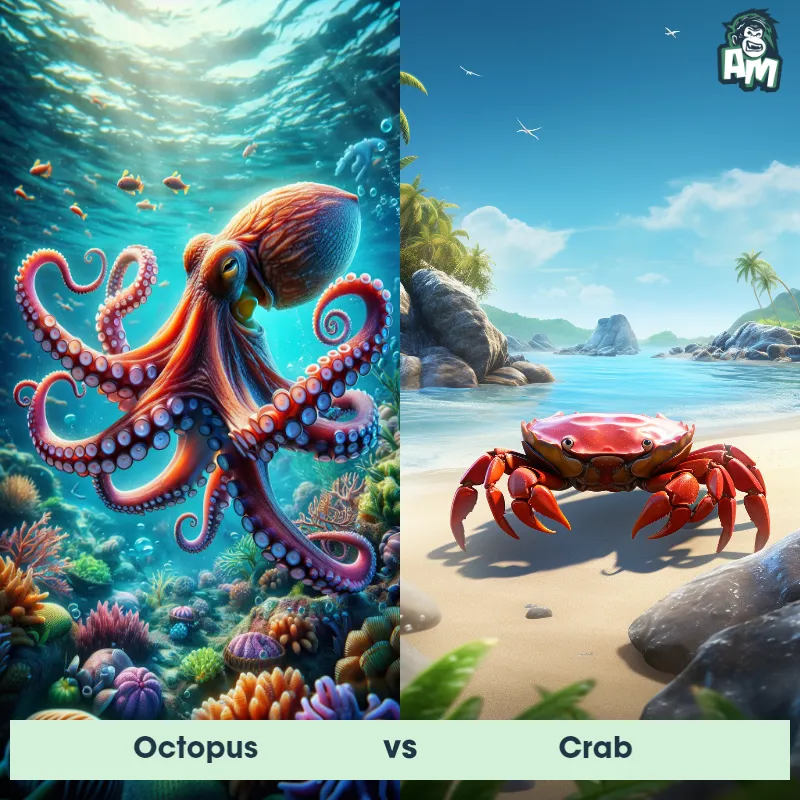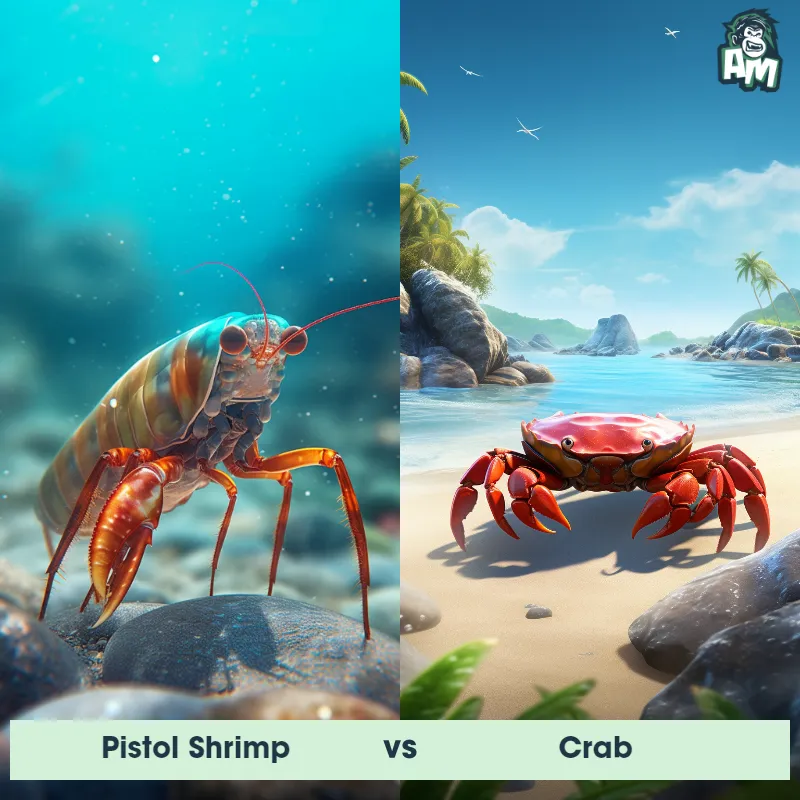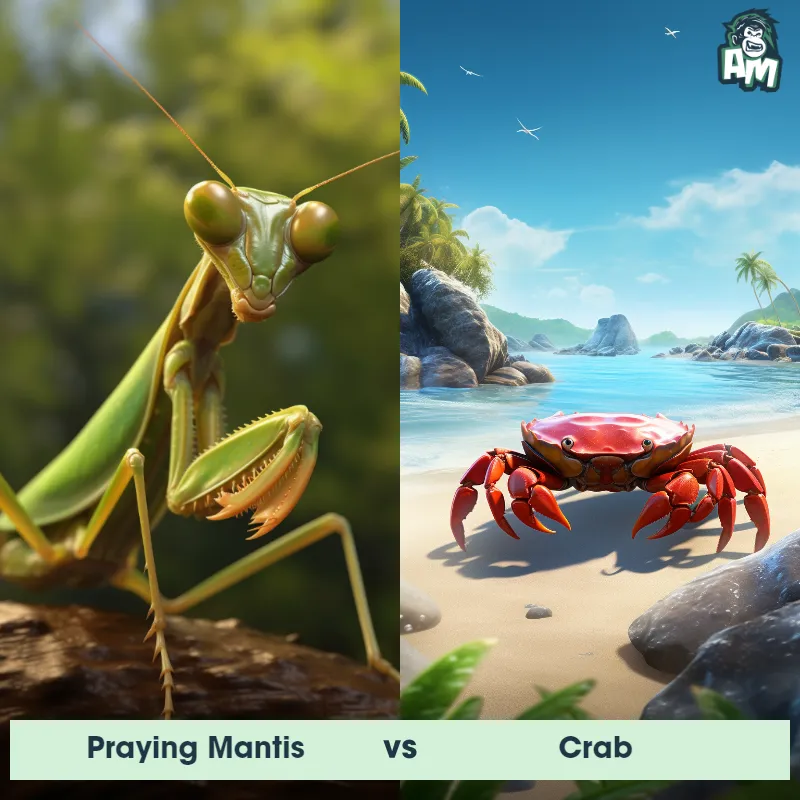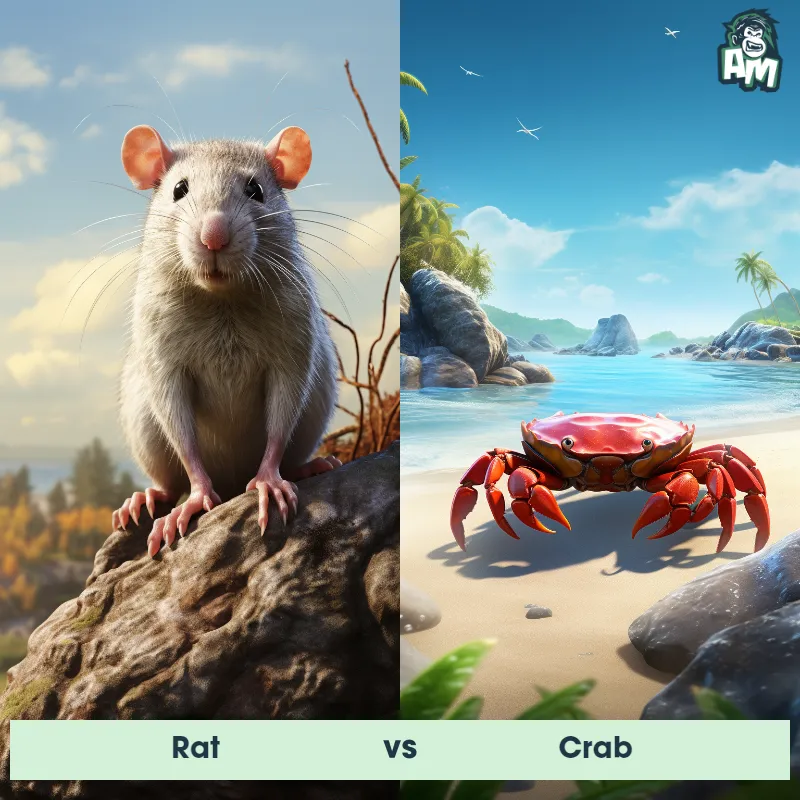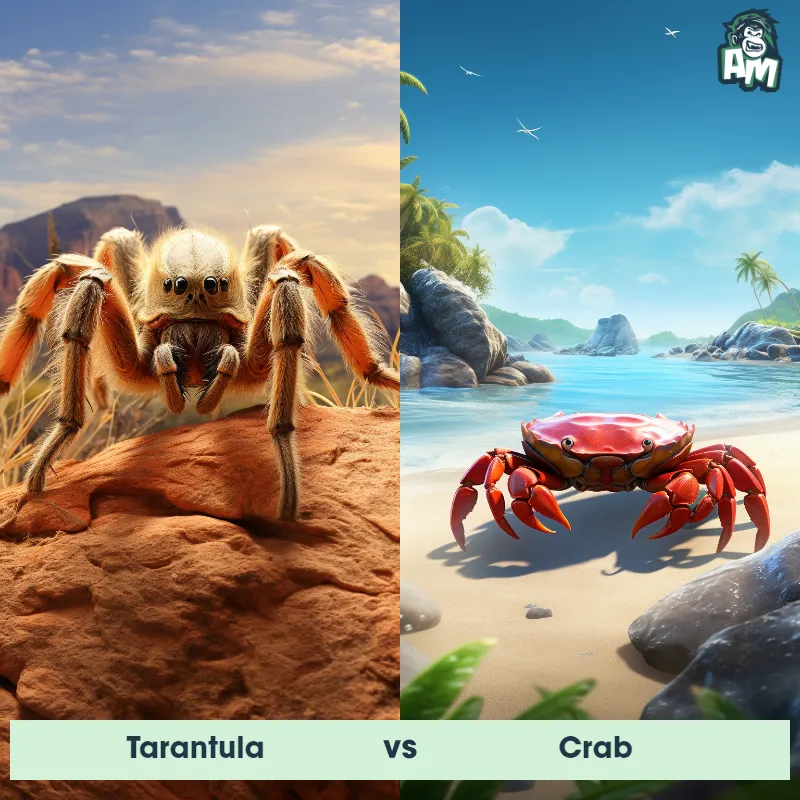The Crab
The Crab is a crustacean known for its sideways-walking motion, which is aided by its distinctive two pairs of legs. With a hard exoskeleton, it protects its soft body, and its eyes are located on stalks, allowing for a 360-degree field of vision. The common name "Crab" encompasses a range of species found in various habitats such as oceans, seas, and freshwater. They have pincers on their front limbs that vary in size depending on the species, and their coloration can range from shades of brown and green to vibrant hues.
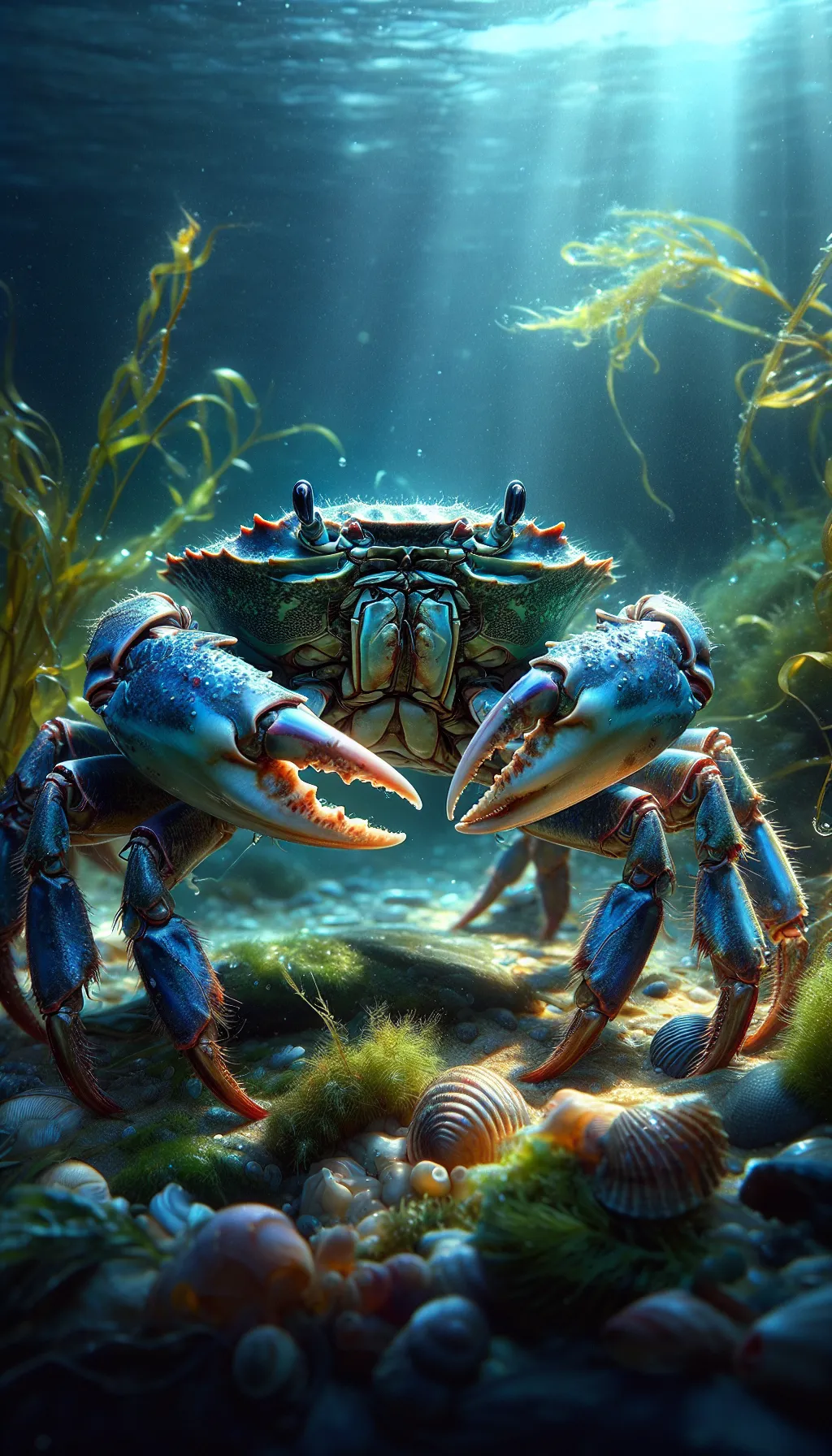
| Crab | |
|---|---|
| Size | 0.25–14 inches (6.3–35.5 cm) in length |
| Weight | 0.5 ounces to 44 pounds (14 grams to 20 kilograms) |
| Speed | 11 mph (18 km/h) |
| Key Strength | Robust claws |
| Biggest Weakness | Vulnerable when molting |
| Scientific Name | Brachyura |
| Family | Decapoda |
| Habitat | Ocean, Freshwater, Land |
| Geography | Worldwide |
| Diet | Omnivores, eat algae, mollusks, bacteria, fungi, and small fish |
| Lifespan | 1 year - 100 years |

The Crab
The Crab is a crustacean known for its sideways-walking motion, which is aided by its distinctive two pairs of legs. With a hard exoskeleton, it protects its soft body, and its eyes are located on stalks, allowing for a 360-degree field of vision. The common name "Crab" encompasses a range of species found in various habitats such as oceans, seas, and freshwater. They have pincers on their front limbs that vary in size depending on the species, and their coloration can range from shades of brown and green to vibrant hues.
Fun Fact: Did you know that some species of Crabs have the ability to regenerate their limbs if they get injured? Their remarkable ability to regrow lost limbs is a fascinating feature that sets them apart from many other animals.
| Crab | |
|---|---|
| Size | 0.25–14 inches (6.3–35.5 cm) in length |
| Weight | 0.5 ounces to 44 pounds (14 grams to 20 kilograms) |
| Speed | 11 mph (18 km/h) |
| Key Strength | Robust claws |
| Biggest Weakness | Vulnerable when molting |
| Scientific Name | Brachyura |
| Family | Decapoda |
| Habitat | Ocean, Freshwater, Land |
| Geography | Worldwide |
| Diet | Omnivores, eat algae, mollusks, bacteria, fungi, and small fish |
| Lifespan | 1 year - 100 years |
Crab Matchups
We use AI to simulate matchups between the Crab and other animals. Our simulation considers size, strength, and natural predatory behaviors to determine the most likely outcome.

Can't find the Matchup you want?
Create Your Own MatchupCrab: Diet, Predators, Aggression, and Defensive Behaviors
What do Crabs eat?
Crabs are omnivorous creatures and have a varied diet that includes both plants and animals. They primarily feed on algae, plankton, small fish, mollusks, and detritus. They are also known to scavenge on dead animals or plants on the ocean floor.
Do Crabs have any predators?
Yes, Crabs have several predators in the wild, including seabirds, fish, octopuses, sea otters, and larger crustaceans. They are also at risk of being hunted by humans for their meat.
Are Crabs aggressive?
Crabs are not typically aggressive towards other creatures, but they do exhibit territorial behavior. If they feel threatened or cornered, they may exhibit defensive behaviors such as raising their pincers or retreating into their shells.
Do Crabs fight?
Crabs will engage in fights with each other over territory or mates. These fights often involve the use of their pincers to try and intimidate or physically harm their opponent. The outcome of these fights usually determines the dominant individual.
How do Crabs defend themselves?
Crabs have several defense mechanisms to protect themselves from predators or threats. They can use their sharp pincers to pinch or snap at attackers, they can also use camouflage to blend into their surroundings and avoid detection. Some species of Crabs can also regrow lost limbs as a defense mechanism.
What is the biggest weakness of a Crab in a fight?
One of the biggest weaknesses of a Crab in a fight is their relatively slow speed and mobility. While they may have strong pincers for defense, they are not very fast or agile creatures. This can make them vulnerable to faster predators or competitors in a fight.
Fun Fact: Crabs communicate with each other using different signals and gestures, with one of the most intriguing being their territorial displays. Male Crabs often engage in fierce battles, showing off their strength by trying to push each other away in dominance.
Fun Fact: Crabs have a unique way of extracting oxygen from the water. While they have gills like fish, they can also breathe through a moist patch of tissue inside their gill chamber called a branchiostegite, allowing them to survive in periods of time when they are out of water or the water is low in oxygen. This adaptation enables them to inhabit a wide range of environments.



